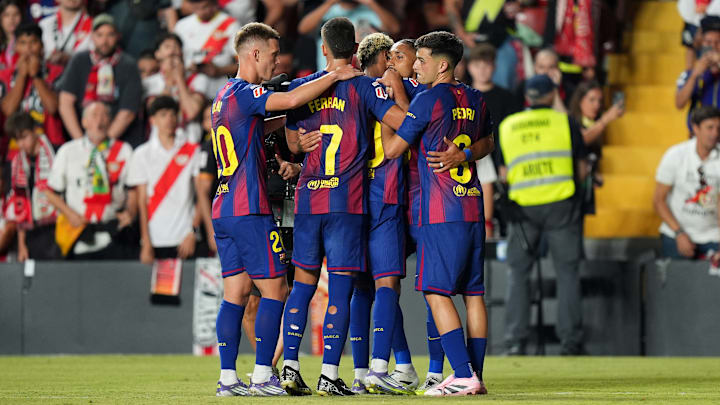Barcelona finds itself in a challenging financial position, which is significantly impacting Hansi Flick's ability to shape his ideal squad. The club's financial constraints have put an end to the era of massive transfer spending, a period that saw them make costly mistakes with players who failed to fill the shoes of legends like Andres Iniesta and Lionel Messi.
These past transfer blunders, combined with La Liga's strict financial fair play rules, have forced Barcelona to adopt a more cautious and sustainable strategy. This new approach heavily relies on promoting talent from their renowned youth academy, La Masia. This model has proven successful, culminating in a domestic treble last season.
During the most recent transfer window, the team made several strategic moves. They brought in Marcus Rashford on loan and signed Joan Garcia and Roony Bardghji for relatively modest fees of €25 million and a small fee from FC Copenhagen, respectively. To offset these costs, particularly the fee for the new goalkeeper, Barcelona prioritized player sales.
The club offloaded several players, including Pau Victor for €12 million, and notably, moved on from experienced players like Inigo Martinez, Clement Lenglet, Ansu Fati, and Oriol Romeu to free up significant space on the wage bill. This approach highlights the club's new focus on financial responsibility and building a team from within.
Biggest winners of the transfer window
Retaining the majority of the squad was undoubtedly the biggest bonus, with the departure of just one regular first-team player, Iñigo Martínez, highlighting that the situation could have been far worse. His impact has been clear in the lack of solid defensive performances against Levante and Rayo Vallecano. However, the outcome could have been disastrous had the club lost more players, especially with limited funds available for replacements.
Fermín López was consistently linked with our Champions League opponents, Chelsea and Newcastle, both reportedly targeting the Spanish international to solve their attacking midfield issues. While a €40 million exit was speculated, that valuation was never met, partly due to strong interest, but also due to the La Masia graduate’s reluctance to leave.
Rumors surrounding Marc Casadó's potential departure were put to rest when Hansi Flick handed him a start against Levante, signaling his importance to the team. Despite interest from several Premier League clubs, no deal materialized, and the midfielder stayed. Similarly, Dani Olmo was another name frequently mentioned in summer transfer talks. However, persistent noise from within the club regarding his value and role served as a clear warning to potential suitors.
Losing any of these core players would have left a significant void in the squad,particularly in midfield, where depth is already a concern. The contract renewals of Raphinha, Lamine Yamal, and Jules Koundé proved to be essential business. Keeping them not only preserved the team's competitive edge but also signaled a clear intent to build on stability rather than face another summer of rebuilding.
In the end, Barcelona's greatest success this window wasn't who they signed but who they managed to keep.
